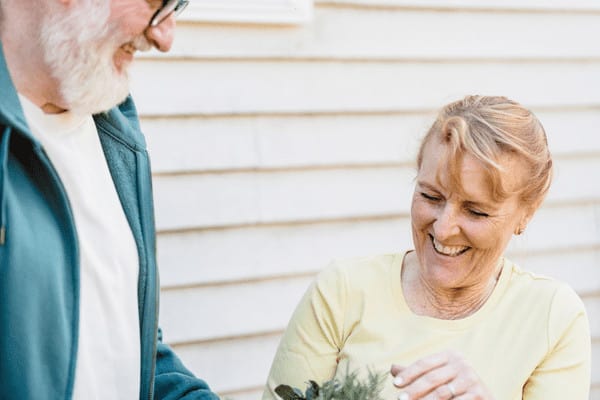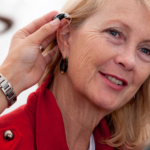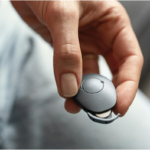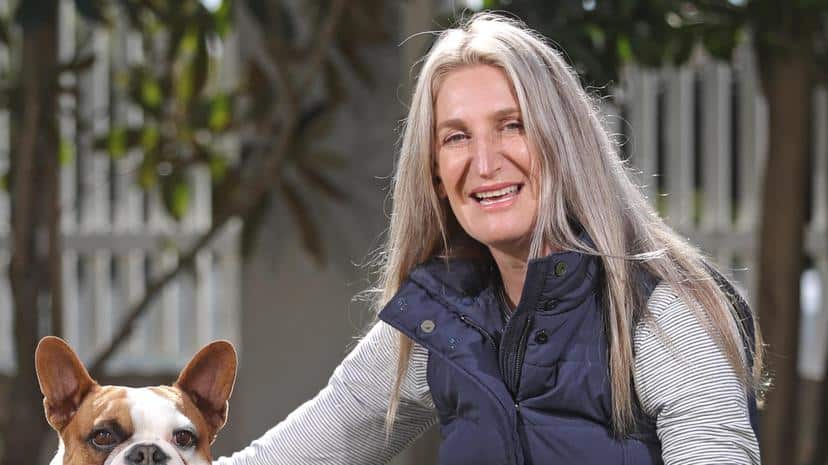
Embracing hearing solutions for age-related hearing loss
Age-related hearing loss is a common health concern and affects as much as one-third of the world’s population (World Health Organization, 2021). It is one of the most common long-term conditions associated with ageing.
One in six Australians over 60 has some form of hearing loss, which increases with age (Keily and Anstey, 2021; HCIA, 2017, NAL, 2020). By the age of 85 years, more than half of Australians have some degree of hearing loss. Hearing loss is not only widespread but also has a significant impact on an individual’s quality of life and overall well-being. Hearing loss in Australia’s ageing population is a significant contributing factor to the late-life disability burden that exists in this country.
Don’t let hearing loss limit you
As we age, it’s not uncommon for our bodies to start to fail us in various ways. For many people, this can be a frustrating and challenging experience. However, one of the most difficult aspects of ageing is the feeling that we have that our minds are still sharp and alert while our bodies at times can no longer keep up.
This disconnect between mind and body can be particularly challenging, as it can make it difficult to engage in activities that we once enjoyed and can limit our ability to experience life to the fullest. While there is no denying that ageing can be challenging for some people, it’s important to remember that there are also many opportunities to continue to learn, grow, and enjoy life regardless of the limitations that age may bring.
Age-related hearing loss can impact our ability to communicate with others and participate in social activities. This can be isolating and may lead to feelings of frustration. However, it’s important to remember that hearing loss is a common issue that affects many people as they age. With the help of modern hearing solutions, such as hearing aids and cochlear implants, it’s possible to overcome these challenges, continue engaging in social activities, and maintain strong connections with loved ones. By seeking out solutions and not allowing hearing loss to hold us back, we can continue to enjoy life to the fullest, regardless of our age.
Some common impacts of age-related hearing loss include
Cognitive decline and dementia | Untreated hearing loss has been associated with an increased risk of hearing loss. Research suggests that the brain may compensate for the loss of auditory information by diverting resources from other cognitive functions, leading to a decline in overall cognitive ability.
Social isolation | Hearing loss can make participating in social activities and having conversations challenging – often leading to feelings of loneliness.
Mental well-being | Hearing loss of any degree can dramatically affect an individual’s mental well-being. Adjusting to an impairment of any of the senses can be overwhelming, significantly impacting the individual’s quality of life.
Physical safety | Hearing loss can affect one’s ability to hear warning signals, such as smoke alarms or car horns, leading to increased safety risks.
Volunteering & employment | Hearing loss can limit any volunteering or employment opportunities.
Exploring modern options for hearing loss
Given the prevalence and impact of age-related hearing loss in Australia, individuals need to seek treatment and support as early as possible. Hearing aids and other assistive technologies, such as cochlear implants, can help manage hearing loss and improve an individual’s quality of life. Additionally, early intervention may reduce the likelihood of developing other health issues such as loneliness.
Preserving your hearing for life
You can do several things to minimise the risk of developing age-related hearing loss.
Protecting your hearing | Exposure to loud noises is a leading cause of hearing damage and loss over time. The risk of damage increases the older the individual is. It is important to limit your exposure to loud noises, such power tools, to protect your hearing.
Maintaining a healthy lifestyle | A healthy diet, regular exercise, and stress management are all important factors in maintaining good hearing health.
Managing health conditions | Underlying health conditions such as high blood pressure and diabetes can increase the risk of age-related hearing loss.
Quitting smoking | Smoking is a known risk factor for age-related hearing loss and has many other detrimental effects on health.
Regular hearing assessments | Regular hearing tests can help detect hearing loss early and allow for early intervention. Early detection and treatment of hearing loss can help slow the progression of the condition and drastically improve quality of life.
Use assistive devices | If you already have hearing loss, use assistive listening devices, hearing aids or cochlear implants to help you hear better and minimise the impact of hearing loss on your daily life. This will also help to decrease any cognitive decline that may have arisen from the loss of auditory input.
By taking these preventive measures, people can reduce their risk of developing age-related hearing loss and maintain their hearing health and well-being as they age.
Age-related hearing loss is a significant issue affecting the aging population of Australia. Its impacts on an individual’s quality of life, communication, and well-being cannot be overstated. It is important for individuals to seek early treatment and support to help manage their hearing loss and maintain their independence and well-being as they grow older.
If you think you might be experiencing age-related hearing loss and would like to talk to an audiologist or get a hearing test, contact one of our team or book an appointment today!
Book a hearing assessment with Lions Hearing Clinic today
References:
World Health Organization. World Report on Hearing. 2021. https://apps.who.int/iris/handle/10665/339913
Hearing Care Industry Association, The social and economic cost of hearing loss in Australia. 2017 https://www.hcia.com.au/hcia-wp/wp-content/uploads/2017/08/Social-and-Economic-Cost-of-Hearing-Health-in-Australia_June-2017.pdf
Kiely KM, Anstey KJ. Putting age-related hearing loss on the public health agenda in Australia. Public Health Research and Practice. 31(5):e3152125; 2021. https://www.phrp.com.au/issues/december-2021-volume-31-issue-5/putting-age-related-hearing-loss-on-the-public-health-agenda-in-australia
National Acoustic Laboratories. Making a noise about hearing: Factors to consider when developing hearing health awareness messages for Australians. 2020. https://www.nal.gov.au/wp-content/uploads/2021/12/NAL-May-2020-September-2020-update-Report.pdf






